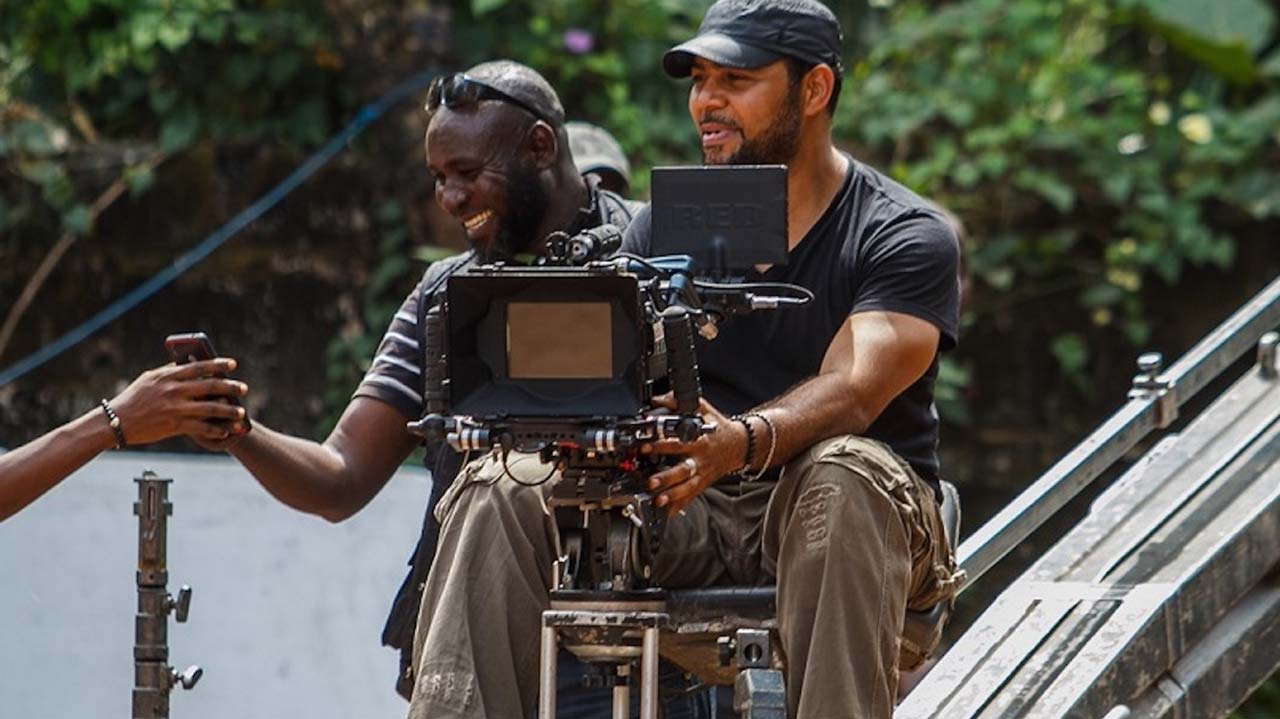
• Oscars rejigs board for Nigerian entries, invite filmmakers for 2020 awards
• Ramsey Nouah makes directorial debut
From the cult of an individual to a view from the minaret, Nollywood has evolved over the years to become one of the most watched film cultures in the world. It has gone on to birth an industry of world class indigenous film actors, world acclaimed movie directors, producers, cameramen, editors, photographers, soundtrack artistes, special effects experts, movie financiers and diverse other talent.
Only this year, Netflix bought the global license for Genevieve Nnaji’s LionHeart and films like, The Bling Lagosians (N120,135,1390), Chief Daddy (N387,028,949), The Wedding Party 2 (N512,000,0000), The Wedding Party (N453,050,000), Fifty (N94,030,500) and 30 Days in Atlanta (N137,200,000) have gone to become the highest grossing films in the country.
Today, Nollywood has created a crop of top talent many of whom have gone on to international acclaim such as, Genevieve Nnaji, Omotola Jalade-Ekeinde, Stephanie Linus, Rita Dominic, Desmond Elliot, Ramsey Nouah, Kanayo O. Kanayo and many others.
One film, Living in Bondage, however, heralded the burgeoning local film industry. Released 27 years ago to critical acclaim, the two-part movie was directed by Chris Obi Rapu. Written by Kenneth Nnebue and Okechukwu Ogunjiofor and produced by Ogunjiofor. Shot straight-to-video, it starred Kenneth Okonkwo and Nnenna Nwabueze in their breakout roles.
In 2015, Nouah had secured the rights to Living in Bondage from Kenneth Nnebue for a possible remake to be filmed in Europe and America as well as Nigeria.
In 2018, Nouah announced his remake had become a sequel now titled, Living in Bondage: Breaking Free. Nouah, who plays a villain, makes his directorial debut, with original actors, Okonkwo, Udokwu and Kanayo, also making appearances.
The sequel is co-produced by award winning producer, Steve Gukas; Dotun Olakurin and Charles Okpaleke.
The Executive Producer, Okpaleke, explained, “Living in Bondage is the single most compelling; most consequential movie franchise in the history of the Nigerian film industry.”
The movie producer, Steve Gukas, added, “it spurned an industry that today entertains hundreds of millions in far flung locations across the world. Nollywood is celebrated in Brazil, The Netherlands, South Africa, everywhere. It is an industry that has brought joy and employment to millions of Nigerians here at home and in the diaspora. It is why there is no more compelling a story than the story of Living in Bondage: Breaking Free.”
Debut director, Nouah, himself a Nollywood actor of humongous repute, added, “I could not have asked for a bigger platform on which to make my directorial debut. From the power of this story, the intensity of the script, the cache of the cast and the quality of my technical support, there is no story as fascinating as Living In Bondage: Breaking Free. It is truly the moviemaker’s dream project – and I should know working on both sides of the camera. I cannot wait to pack cinema seats with this truly movie magical work.”
The movie tells the story of Nnamdi, Andy Okeke’s mysterious son, and his vaunting quest for the big life. Nnamdi’s untamed quest for the quick buck, fast car, easy living, inevitably took him on a perilous journey that is better told by the stellar cast, classic and current, including Kenneth Okonkwo, Kanayo O. Kanayo, Enyinna Nwigwe, Nancy Isime and Munachi Abii.
Written by Nicole Asinugo and C.J. Obasi, the movie has an original score produced by Larry Gaaga that features A-list Afrobeat artistes.
Meanwhile, the Nigerian Oscar Selection Committee (NOSC) has called on Nigerian filmmakers to submit entries for the ‘Best International Feature Film’ category of the 2020 Academy of Motion Picture Arts and Sciences, otherwise called The Oscars.
The NOSC said that the competition is open to Nigerian filmmakers living in Nigeria or in the Diaspora. The film also has to be 40 minutes and produced outside the USA. It must have been released in Nigeria between October 1, 2018 and September 30, 2019, and exhibited in a commercial cinema theatre for at least seven days.
Other criteria for selection include originality of story, good directing, acting, cinematography and sound, while the recording of the original dialogue track as well as the completed picture must be predominantly in a language or languages other than English.
Entries received will be scrutinised under the eligibility rules and the nominated film will represent Nigeria at the Academy Award 2020.
NOSC urged Nollywood filmmakers to avail themselves opportunity to participate in the Oscars by submitting their films latest on Friday, September 20, 2019.
The committee also apologised for the late announcement, which was due to delay in approval for the reconstituted 12-man committee by the Academy.
Comprising old and young, the newly constituted committee is headed by pioneer member, Chineze Anyaene as chairman, with other members including, Mildred Okwo, Mahmood Ali-Balogun, Ngozi Okafor, Charles Novia, Abba Makama, Bruce Ayonote, Ramsey Nouah, Chioma Ude, Shaibu Husseini, Adetokunbo “DJ Tee” Odubawo and CJ Obasi.
“We don’t take this for granted. We hope the committee fulfills its original mandate, which is to give a platform to credible Nigerian films to compete at the prestigious Academy Awards yearly,” said Anyaene. “We couldn’t make any submissions in previous years due to unavailability of qualifying films, but things are looking hopeful… and we are actively working towards having an entry this year.”
Recall that Nigeria joined 82 other countries contesting the ‘Foreign Language’ diadem, now called ‘International Feature Film’ category, after an approval and subsequent inauguration of the NOSC in February 2014. However, Nollywood could not present any film for the Oscars, as the few submissions did not meet basic criteria.






